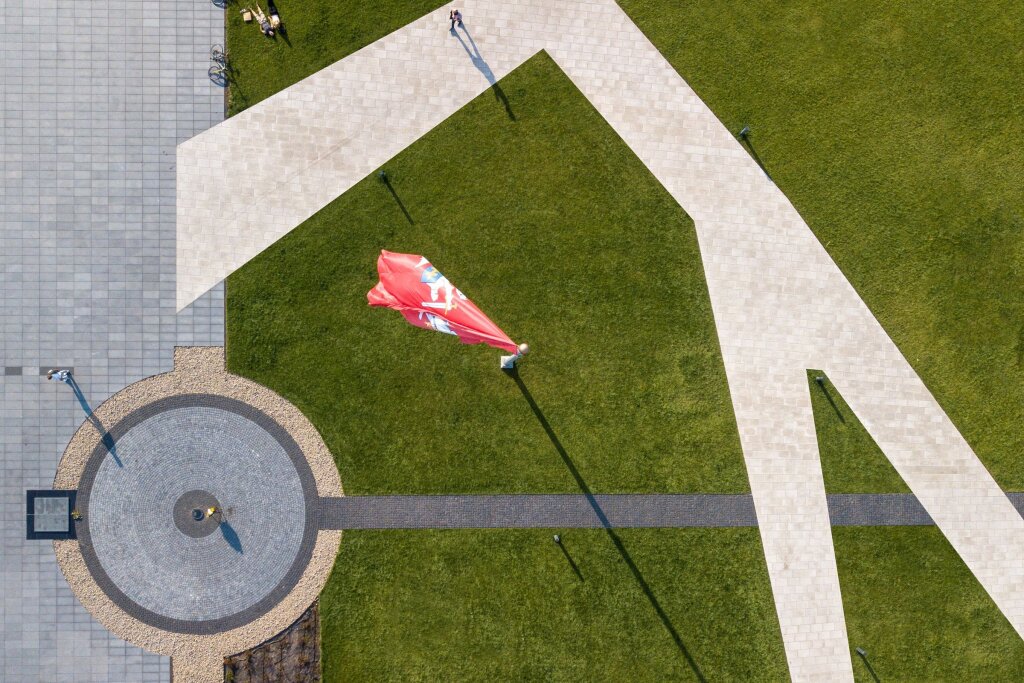For over thirty years, the Lukiškės Square question remains the biggest mnemonic dilemma in Vilnius. Known as Lenin Square during the Soviet occupation, it used to have a focal point – Nikolay Tomskiy’s statue of the Leader of the World Proletariat – and a clear function – the principal site of mass gatherings and official ceremonies. Furthermore, with key administrative buildings, including the Council of Ministers of the Lithuanian SSR and the KGB Headquarters in its vicinity, this square was the representational lynchpin of Soviet power for the entire country.
The restoration of independence sealed the fate of the Lenin statue. Its removal amidst the cheering crowds on 23 August 1991 (the fifty-second anniversary of the Molotov- Ribbentrop Pact signing) gave tangibility to a highly symbolic act: the Pact’s reversal. However, the urge to fill in the void left after Lenin’s departure with a national monument proved to be as great for the city authorities as it was difficult to realise.
In this presentation, Dr Dzmitry Suslaŭ examines the continued attempt to find an unambiguous, unifying national symbol to grace Lukiškės Square following its designation as a preeminent (national) representative space in 1999. Today, after several competitions, heated debates, and court hearings, the square remains monument-free, suggesting that a shared vision of the past exemplified by conventional commemorative forms is inevitably at odds with a discourse of competing memories.
This event will be hosted in person and virtually on Zoom. Register for the Zoom meeting here. Non-NYU affiliates must RSVP for in-person campus access.
Dr Dzmitry Suslau is a Lecturer at the UCL School of Slavonic and East European Studies (Languages and Cultures division). A specialist in public art, he is also the Creative Director of Climate Art, an independent public art commissioning platform. Prior to his work at UCL, Dzmitry worked at the Victoria and Albert Museum, contributing to their exhibition research and public programming. His research interests include cultural memory, human ecology, and a broader connection between culture and environmental change. Dzmitry is currently working on a book exploring the institutionalised mode of remembering and the images that states project of themselves in Kaliningrad, Vilnius, and Minsk by means of public art and monumental commissioning.



